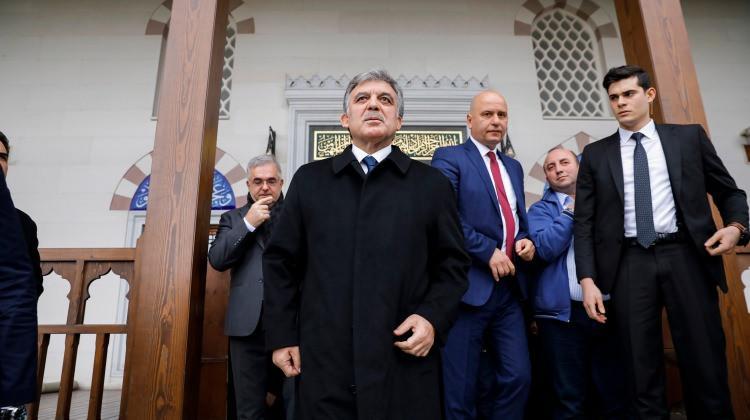
Former Turkish President Abdullah Gül on Dec. 30 said he will continue expressing his views, responding to criticism from the ruling Justice and Development Party (AKP) over a debate on a controversial emergency decree published recently.
“As someone who believes in freedom of thought and expression, which are founding principles of our party, I will continue to express my view in situations I find necessary,” Gül’s office wrote in a note signed by Gül on Twitter, referring to the AKP.
Gül also said he was being targeted since the latest row between himself and the AKP over decree number 696.
“I would like to draw attention to the increasing number of unethical and disrespectful attacks I have been subjected to by certain members of parliament and some trolls since my latest comments [on the decree],” Gül wrote on his Twitter account.
Gül and many opposition groups have slammed the decree, saying that it was “vaguely-worded” and could be misinterpreted.
President Recep Tayyip Erdoğan hinted bitterness over comments coming from Gül, also a co-founding member of the AKP, speaking in the Black Sea province of Kastamonu on Dec. 30, regarding the latest emergency degree installed.
“Shame [on you],” Erdoğan said, addressing the crowd in Kastamonu at the AKP’s provincial congress.
“Weren’t we sharing the cause?” the president said.
“How did you get on Kemal’s boat?” Erdoğan added, referring to main opposition Republican People’s Party (CHP) head Kemal Kılıçdaroğlu.
In the same speech, Erdoğan criticized Kılıçdaroğlu too, accusing him of having ties with groups the government says are terror-linked.
Erdoğan said some of “these names” and how they left a shared cause did not surprise them.
Gül, on Dec. 29, responded to criticism from within the AKP against his views on the controversial recent state of emergency decree law, saying it is his duty to comment on important matters.
“I am a president who has spent his entire life serving the government and society. Of course it is my duty to share my vision and ideas about important matters,” Gül told reporters after Friday prayers.
“I believe it is nonsense to seek ulterior motives here,” he added.
Gül had said he favored a revision of the phrasing of the contentious decree law granting immunity to civilians “who take part in suppressing coup attempts” and “combating terror” in order to avoid possible problems stemming from the ambiguity of the law’s content.
“The ambiguity that violates legal parlance in emergency decree no. 696 is worrying for a constitutional state,” Gül had stated in a Twitter post on Dec. 25.
Speaking to the reporters traveling with him from Chad to Tunisia on Dec. 28, Erdoğan responded to Gül’s criticism over the state of emergency decree, which has also been blasted by many other opposition groups too.
“It’s saddening that our former president has unfortunately mentioned ambiguity. On what grounds are you talking about ambiguity? Which article are you referring to? This is saddening,” Erdoğan said.
He denied there was any uncertainty in the content of the decree law and vowed that the government is committed to implementing it.
“Necessary interventions can be made in the future if this decree gets misinterpreted, as suggested. In such a case, parliament will do whatever is necessary,” Erdoğan added.
Prime Minister Binali Yıldırım also said on Dec. 27 that the decree law will not be changed, while insisting that it will only apply to those who took part in opposing the military coup attempt on July 15, 2016, and the day after, July 16.
“There will be no amendments. There is no problem with its wording,” Yıldırım told reporters.
Article number 121 of decree number 696 covers “those who have acted within the framework of defeating the coup attempt on July 15, 2016 and terrorist actions that followed it in its aftermath, regardless of whether they have an official title or they are fulfilling an official duty.”
Opposition groups criticized the article’s reference to “subsequent events” as vaguely-worded, saying it could be open to interpretations that provoke social chaos and violence.